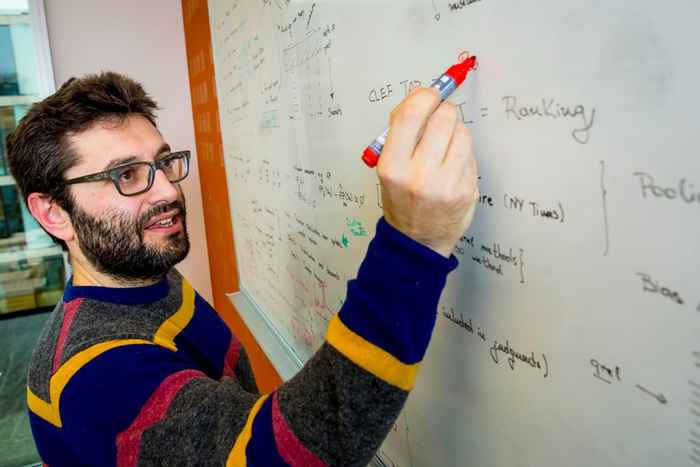Google is your friend
22 June 2023

"I'm looking for a mouse." Sounds simple, but it's actually quite a tricky question for a search engine. Because do you mean a computer mouse or one with whiskers? “Search engines nowadays have about a thousand signals to find out exactly what you mean,” says Evangelos Kanoulas, professor of Information Retrieval at the University of Amsterdam. “For example, your location, what you click on, how long you look at a website, how far you scroll and how you use the mouse.”

Read the whole article from NEMO Kennislink here (in Dutch).
Talking to your search engine.
Evangelos Kanoulas is asked what search engines will look like in the future.
05, July, 2023 - NEMO Kennislink (in Dutch).